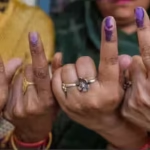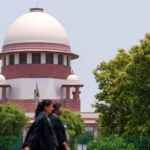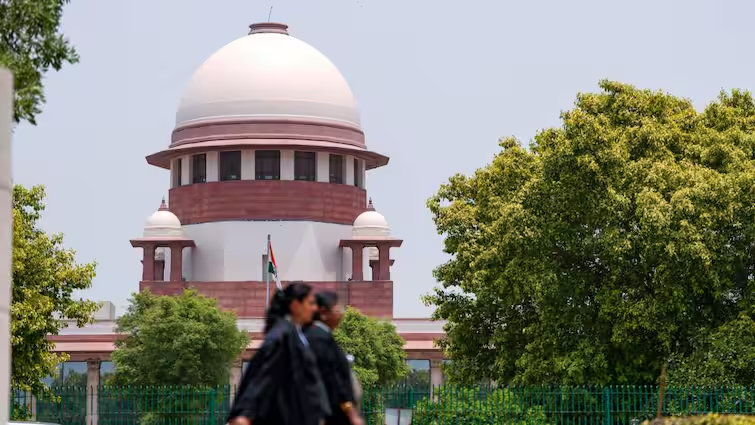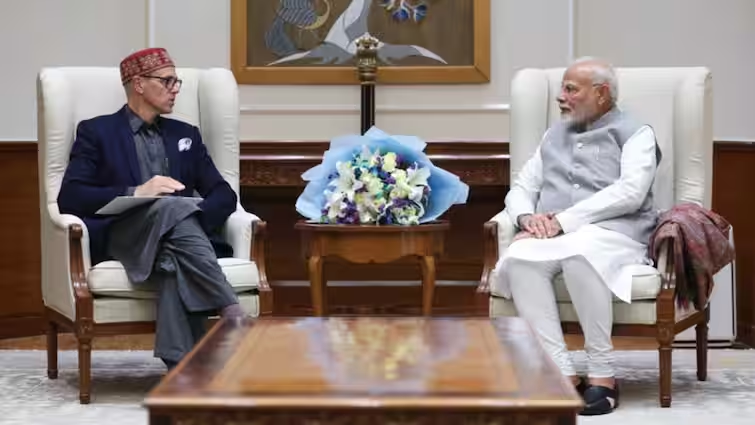Violence in Bhangar, South 24 Parganas: Protesters Set Police Vehicles on Fire During Protest Against Waqf Act
Tension increased in West Bengal’s South 24 Parganas district on Sunday after a protest in Bhangar turned violent. Supporters of the Indian Secular Front (ISF) clashed with police during a demonstration against the Waqf (Amendment) Act. The situation became serious when angry protesters set fire to police vehicles, including motorcycles and a police bus.
This incident happened just days after another violent clash in Murshidabad district, where three people died and around 200 people were arrested. The recent violence in Bhangar shows that protests against the new Waqf law are spreading and becoming more intense.
Protest in Sonpur Village Turns Violent
The clash began in Sonpur village, located in the Bhangar area of South 24 Parganas. A large group of ISF supporters had gathered there. They were planning to go to Kolkata to attend a rally against the Waqf (Amendment) Act. The rally was being led by ISF leader and Bhangar MLA Naushad Siddique.
South 24 Parganas, West Bengal: Violence broke out in Bhangar over the Waqf Amendment Act. ISF supporters clashed with police after being stopped en route to a rally. Five police bikes were torched, a prison van vandalized, and highways blocked. Heavy police deployment has been… pic.twitter.com/vOVz51qvtH
— IANS (@ians_india) April 14, 2025
As they started moving toward Kolkata, police stopped them near Bhojerhat on Basanti Highway. People from nearby areas like Minakhan and Sandeshkhali had also joined the protest. When the police blocked the road and tried to stop them, the crowd became angry.
Some protesters broke through the police barricades. They began shouting slogans and fighting with the police. A few people set fire to police motorcycles and a bus. Videos from the scene showed burning vehicles, an overturned police bus, and large groups of police officers trying to control the situation.
Police Use Lathi-Charge to Disperse Crowd
According to eyewitnesses, the police used lathi-charge (baton charge) to push back the crowd. During the clash, at least one ISF supporter got injured on his head. People nearby ran to safety, and many shops quickly shut down. Families stayed inside their homes, fearing more violence.
The police said that a few of their officers were also hurt when the protesters attacked them. The protesters were later dispersed, and police increased security in the area. A high alert was announced in nearby locations to prevent more violence.
Leader Naushad Siddique Criticizes Waqf Law
After the violence, ISF MLA Naushad Siddique spoke to the media. He said the Waqf (Amendment) Act was harmful and unfair. He called the law an attack on the Muslim community and on the Indian Constitution.
“This law is not only against Muslims; it goes against our Constitution. We will not accept it. Any government that supports such laws should be removed,” Siddique said. He also said that the protest was supposed to be peaceful, but the police stopped it forcefully and caused the clash.
Waqf (Amendment) Act: What Is It?
The Waqf (Amendment) Act is a new law passed by the central government. It changes the way Waqf properties are managed. Waqf properties are lands and buildings donated for religious or charitable purposes in the Muslim community.
The new law gives more control to central authorities over these properties. Many people believe this will take away the independence of local Waqf boards. They fear the government will interfere too much in religious matters.
Some people support the law, saying it will stop the misuse of Waqf lands and bring transparency. But others, especially from the Muslim community and opposition parties, say it is unfair and against religious freedom.
Police Say Law and Order Under Control
The police said they acted to stop a large group from entering Kolkata without permission. They feared that the protest could become uncontrollable in the city. A senior officer said, “Some people in the crowd attacked our officers and set our vehicles on fire. We had to take action to control the situation.”
Police have started looking at video footage from the scene to identify those who were involved in the violence. More arrests are expected in the coming days. Security forces like the Rapid Action Force (RAF) have also been sent to the area to make sure things remain peaceful.
Previous Violence in Murshidabad
The violence in Bhangar comes soon after another major incident in Murshidabad district. A few days ago, a clash between different groups led to the death of three people. Around 200 people were arrested in that case. That incident had already raised questions about growing political and religious tension in West Bengal.
Now, the Bhangar incident shows that similar unrest is spreading to other parts of the state. Political experts say these protests could grow bigger if the government does not listen to the concerns of the people.
Public Fear and Political Reactions
People in the affected areas are afraid that such incidents will continue. Many families stayed indoors throughout the day. Local businesses shut down early, and roads remained empty. Social media is full of videos and photos from the scene, which has increased tension further.
Many opposition leaders and social groups have spoken out against the police action. They say people have the right to protest peacefully. Some human rights groups said using force on peaceful protesters is wrong and undemocratic.
At the same time, the state government has said that law and order will not be allowed to break down. Officials are trying to hold peace meetings and communicate with local leaders to calm the situation.
What Happens Next?
It is still unclear how the situation will develop in the coming days. The ISF has not said whether it will organize more protests. But public anger against the Waqf (Amendment) Act is clearly rising. More demonstrations may happen if the government does not take steps to address the concerns.
Police will remain on high alert in Bhangar and surrounding areas. The administration is watching the situation closely. Any gathering or protest without permission will likely be stopped immediately to avoid more clashes.
Political leaders across West Bengal are also paying close attention. The opposition is using the situation to criticize the government, while the ruling party is under pressure to maintain peace.
The violent protest in Bhangar has added to the growing unrest in parts of West Bengal. What began as a demonstration against a law has now become a serious law-and-order issue. The government must act wisely and ensure that people’s voices are heard, while also keeping peace on the streets.
If the real concerns behind these protests are not addressed, more such incidents could happen in the future. A peaceful solution, through dialogue and understanding, is the need of the hour.















